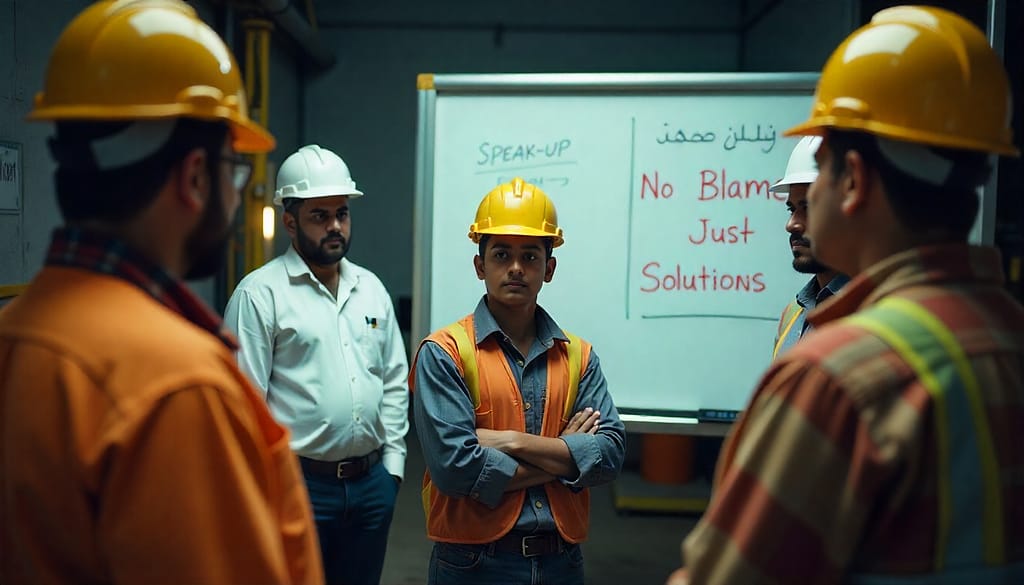Executive Summary
Psychological Safety at Work is a foundational element of modern organizational success, fostering environments where employees feel secure to express ideas, take risks, and collaborate without fear of judgment or retaliation. In today’s globalized workforce, particularly in regions like the UAE, Saudi Arabia, Kuwait, and Europe, psychological safety is critical for attracting and retaining top talent while ensuring compliance with diverse legal and cultural norms. Companies that prioritize psychological safety see higher employee engagement, innovation, and productivity. This article explores its importance, best practices, common challenges, and actionable solutions to create workplaces where employees thrive.
Chapter 1: Introduction to Psychological Safety at Work
Psychological Safety at Work refers to an environment where employees feel safe to voice opinions, admit mistakes, and challenge the status quo without fear of negative consequences. This concept is especially vital in multicultural workplaces like those in the UAE and Europe, where diverse teams must navigate varying legal frameworks and cultural expectations. For instance, the UAE’s labor laws emphasize fair treatment and non-discrimination, aligning with psychological safety principles. Similarly, European countries like Germany and Sweden have stringent workplace well-being regulations.
Research from SHRM shows that teams with high psychological safety outperform others by 50% in productivity. Real-world examples include companies in Dubai implementing open-door policies and regular feedback sessions to foster trust. In contrast, a lack of psychological safety can lead to high turnover, as seen in some European firms where employees felt unable to report harassment due to fear of retaliation. Organizations must integrate psychological safety into their HR strategies to comply with local laws and enhance employee satisfaction. For more insights, refer to the UAE Ministry of Human Resources guidelines.
Chapter 2: Best Practices for Psychological Safety at Work
Detailed Strategies and Methodologies
Creating psychological safety requires intentional strategies. First, leaders must model vulnerability by admitting mistakes and encouraging open dialogue. For example, a tech startup in Riyadh holds monthly “failure forums” where teams discuss lessons learned. Second, organizations should implement structured feedback mechanisms, such as anonymous surveys or 360-degree reviews, to ensure all voices are heard. Third, training programs on empathy and active listening can bridge cultural gaps in diverse teams.
Case studies from Europe highlight the success of these practices. A Dutch company reduced turnover by 30% after introducing psychological safety workshops. Similarly, a Kuwaiti firm improved team collaboration by rewarding employees for innovative ideas, regardless of outcome.
How Allianze HR Consultancy Helps
- Free Hiring Model: Allianze HR Consultancy eliminates financial barriers for job seekers by charging zero fees, ensuring access to top talent without exploitation. This model builds trust and attracts candidates who value ethical treatment.
- Ethical Sourcing: Allianze sources talent from South Asia with full compliance to labor laws, including transparent contracts and fair wages. Rigorous audits ensure agencies adhere to ethical standards, preventing forced labor or unfair practices.

Allianze’s services extend beyond recruitment, offering onboarding support and cultural integration programs to help employees adapt seamlessly. Their expertise in regional labor laws ensures compliance while fostering inclusive workplaces. By partnering with Allianze, companies gain a competitive edge in building psychologically safe environments.
Chapter 3: Common Challenges and Solutions
Implementing psychological safety is not without hurdles. Below are five key challenges and solutions:
- Fear of Retaliation: Employees may hesitate to speak up due to past negative experiences. Solution: Establish clear anti-retaliation policies and whistleblower protections.
- Cultural Barriers: In regions like the Gulf, hierarchical cultures can stifle open communication. Solution: Train managers to encourage input from all levels and celebrate diverse perspectives.
- Lack of Trust: Teams with high turnover often struggle with trust deficits. Solution: Foster team-building activities and transparent leadership communication.
- Legal Non-Compliance: Ignoring local labor laws can undermine safety efforts. Solution: Partner with HR experts like Allianze to ensure adherence to regulations.
- Poor Onboarding: New hires may feel isolated if onboarding is inadequate. Solution: Design immersive onboarding programs that emphasize inclusion and mentorship.
For example, a Saudi company resolved cultural barriers by introducing bilingual feedback tools, while a German firm improved trust through quarterly leadership town halls.
Checklist: Best Practices
- Use job descriptions that respect local laws. In the UAE, avoid discriminatory language and adhere to MOHRE guidelines. For example, specify equal opportunity statements to attract diverse candidates.
- Offer relocation support. Provide housing assistance, visa sponsorship, and cultural orientation to ease transitions. Studies show this reduces early attrition by 40%.
- Partner with ethical agencies like Allianze. Ethical agencies vet employers and candidates rigorously, ensuring fair wages and working conditions. Look for certifications like ISO 30405 for compliance.
- Use regional keywords in job ads. Terms like “Dubai-based” or “KSA hiring” improve visibility. Tools like Google Keyword Planner can identify high-traffic phrases.
Conclusion
In conclusion, Psychological Safety at Work is a non-negotiable pillar of modern HR strategy. To summarize, organizations must prioritize open communication, cultural sensitivity, and legal compliance to foster safe workplaces. Ultimately, the benefits—higher retention, innovation, and productivity—far outweigh the efforts. Five final tips: 1) Train leaders to model vulnerability, 2) Implement anonymous feedback channels, 3) Regularly audit workplace policies, 4) Invest in onboarding programs, and 5) Partner with ethical recruiters like Allianze. By taking these steps, companies can build resilient, inclusive teams.
About Allianze HR Consultancy
Allianze HR Consultancy is a leading recruitment firm dedicated to ethical, zero-cost hiring across the UAE, India, Nepal, Kuwait, and Saudi Arabia. Founded on the mission to bridge talent gaps with integrity, Allianze offers end-to-end recruitment services, including candidate sourcing, compliance audits, and relocation support. Their success stories include placing over 10,000 professionals in roles that align with their skills and values.
With offices in key regions, Allianze ensures seamless cross-border hiring while adhering to local labor laws. Testimonials highlight their commitment to transparency, such as a Kuwaiti client who reduced hiring time by 60% through their services. Allianze’s promise: no fees for job seekers, ever.
👉 Contact us today to streamline your recruitment needs and build a psychologically safe workplace.


